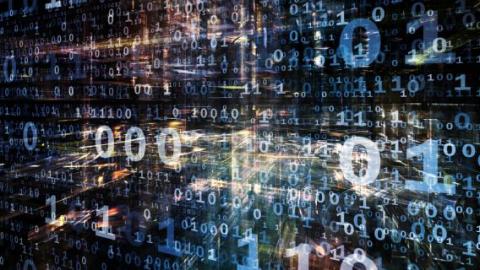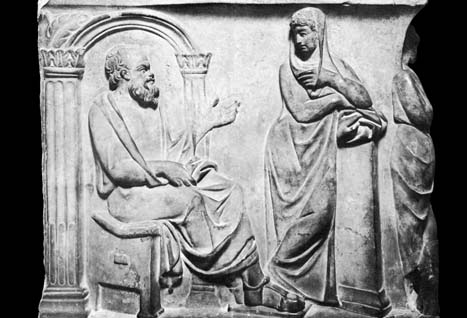Exploring the Crazy Idea of Quantum Computing

Let me briefly describe the difference between a quantum computer and a regular computer, at some level. In a regular computer, you’ve got ones and zeros, which you store in binary form and you manipulate them and they do calculations or make your iPad work or whatever. Ones and zeros, and we store them in different ways. You can store them, for example, in a way that at least I can argue simply.
Let’s say you have an elementary particle that’s spinning. If it’s spinning, and we say it’s spinning, it’s pointing up or down depending upon whether it’s spinning this way or this way, pointing up or down. And so, I could store the information by having lots of particles and some of them spinning up and some of them spinning down. Right? One’s and zero’s.
But in quantum world, it turns out that particles like electrons are actually spinning in all directions at the same time, one of the weird aspects of quantum mechanics. We may measure, by doing a measure of an electron, find it’s spinning this way. But before we did the measurement, it was spinning this way and this way and that way and that way all at the same time. Sounds crazy, but true.
Now that means, if the electron’s spinning in many different directions at the same time, if we don’t actually measure it, it can be doing many computations at the same time. And so a quantum computer is based on manipulating the state of particles like electrons so that during the calculation, many different calculations are being performed at the same time, and only making a measurement at the end of the computation.
So we exploit that fact of quantum mechanics that particles could do many things at the same time to do many computations at same time. And that’s what would make a quantum computer so powerful.
In Their Own Words is recorded in Big Think’s studio.
Image courtesy of Shutterstock





